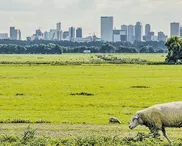If there was a prize for the number of key people you’ve influenced before you are 18, Greta Thunberg would probably be a strong contender. She has had an extraordinary time in the last year, speaking at major conferences, going to key places, and meeting so many important world leaders. It’s sometimes hard to remember she will only be 18 later on in 2020. She is part of the Gen Z generation.
The large numbers of people born after the end of the Second World War, especially in the US and the UK, caused the phrase ‘baby boomer’ to be popular for a while, quickly shortened to just ‘boomer,’ and usually taken for simplicity as those born between 1945 and 1963. Those coming afterwards were far fewer in number; they ‘stopped the boom’, or ‘busted’ it, and so for a while were called the ‘baby busters’. This is a disparaging title, however, and when Douglas Coupland published his book Generation X: Tales for an Accelerated Culture in 1991 his phrase instantly stuck and they became ‘Gen X’ (born 1964 to 1982) from then on.
The children of Gen X could naturally be called Gen Y and they were for some time, and their grandchildren Gen Z, but with the Gen Y cohort being those born between 1983 and 2001, around the time of the dawn of the new millennium, the term ‘millennials’ became fashionable and has stuck ever since. Different people give slightly different years of birth for each cohort, but the years for Gen Z are here taken as 2002 to 2020: that is, they are all 21st century!








Could we abandon church notices?
How are your notices? Highlight of the service, or a necessity that is dull as ditch-water?For most of us, …